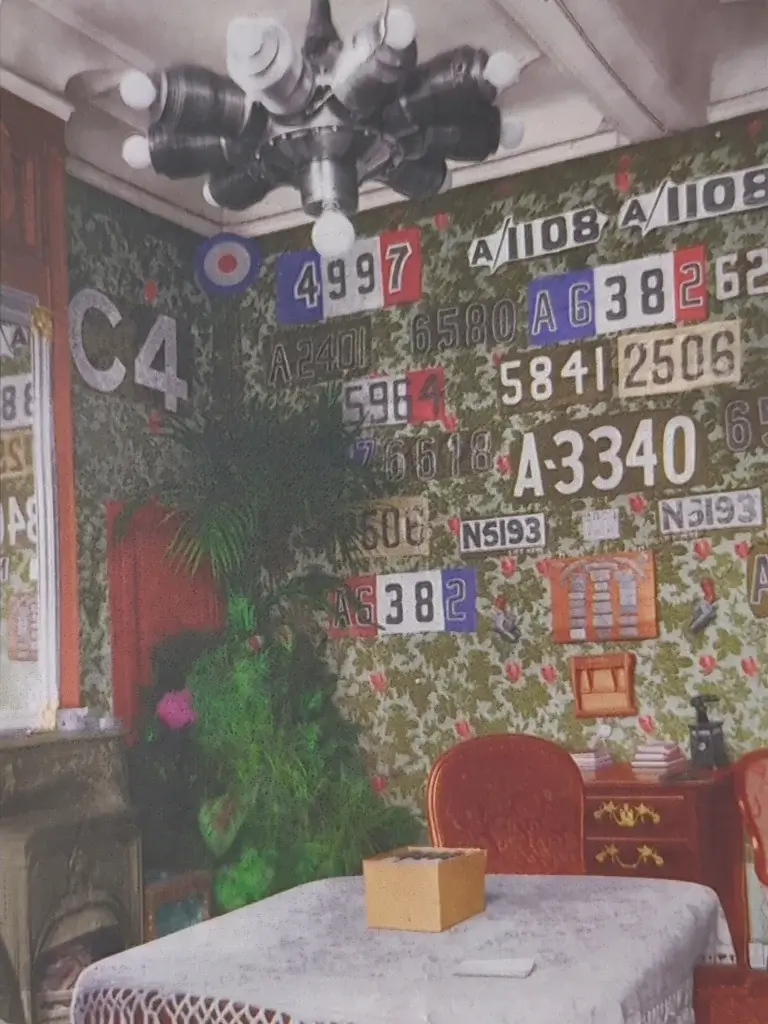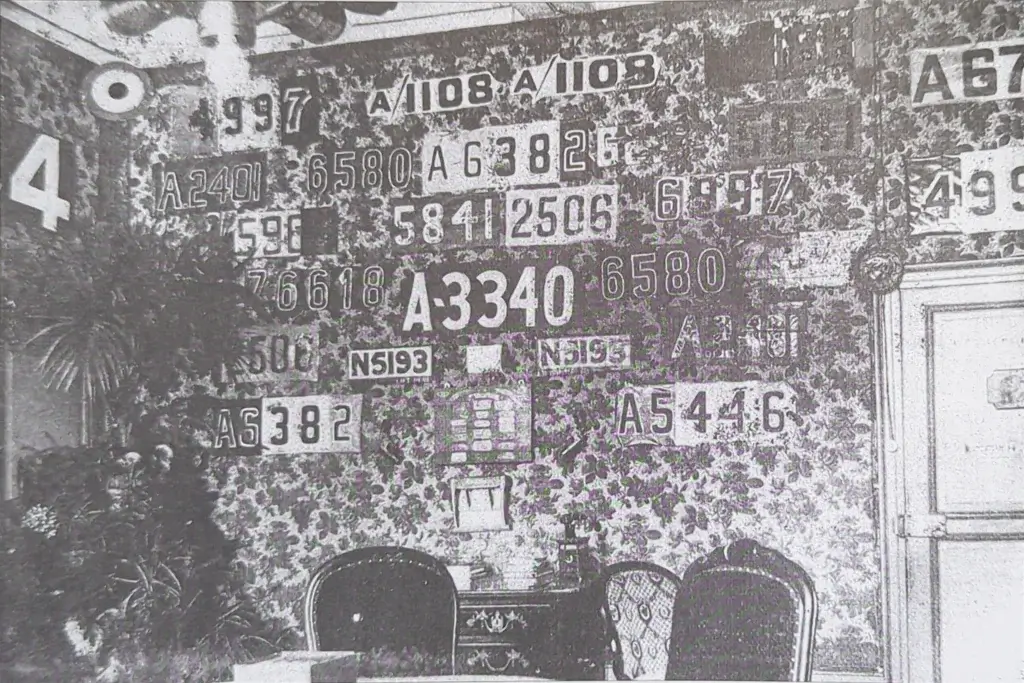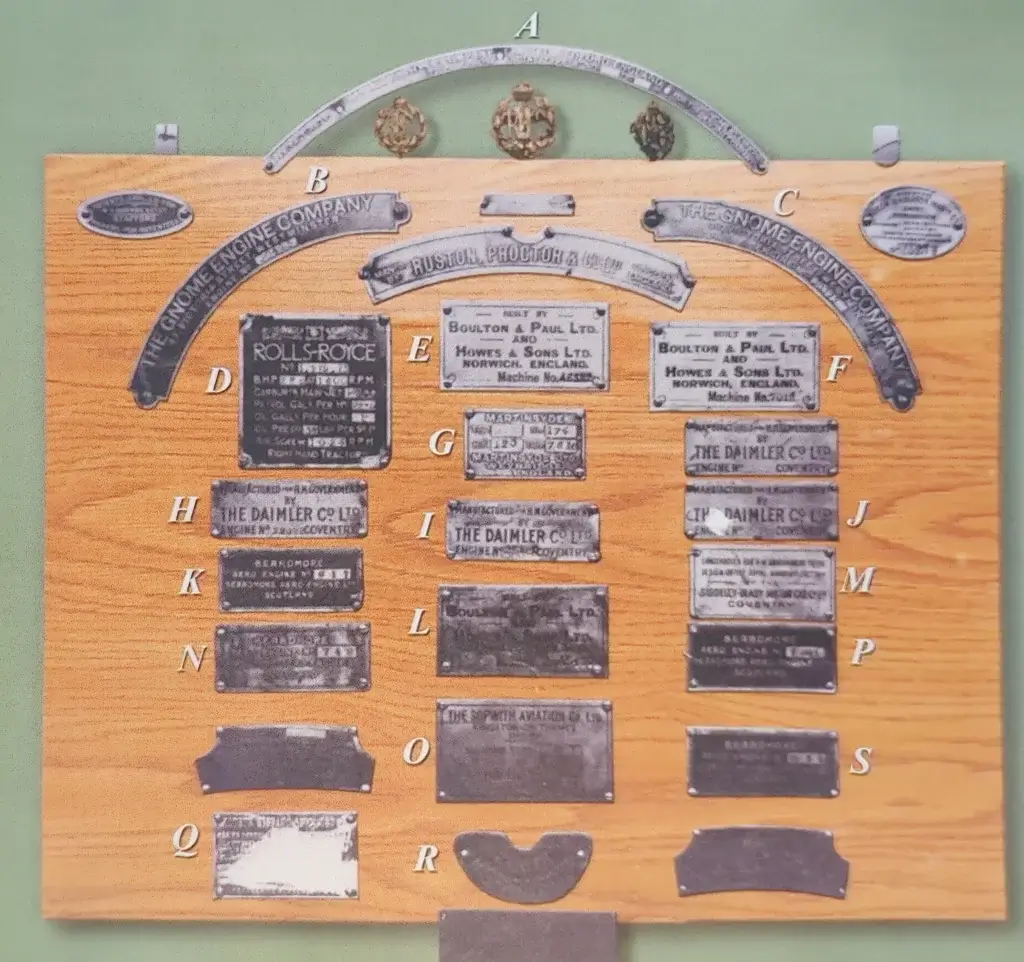13 April 1917
Source ID: 55
“Lothar writes: The squadron was divided into two groups, which meant that half the squadron always flew together. My brother flew as squadron leader, sometimes with one group, sometimes with the other. My group was led by Schäfer, and besides me, Wolff, Allmenröder and Lübbert also flew. At the time, that was the most favourable number for flying together. The entire group later earned the Pour le Mérite, but unfortunately Lieutenant Lübbert was killed before his time. He had already accomplished the most fabulous things in his field aviation unit. Only death could prevent our dear comrade from earning the Pour le Mérite. The group had an early start that day, which meant we had to be ready to take off at any moment from dawn onwards; that was very early, between four and five o’clock. We were sitting in the take-off house, having just got up, when the telephone rang: ‘Six Bristols from Arras to Douai.’ Now we were already up, so off we went. At an altitude of three thousand metres, there was a broken cloud cover. Just as we were taking off, we saw the English right below the cloud cover, already near our airfield. My brother’s red bird was ready for take-off on the field, with his mechanics standing by. There was no sign of my brother. We managed to catch up with the Englishmen, but the guys flew so skilfully in the cloud layers that none of us could shoot one down. Whenever you were behind one at firing range, it disappeared down or up into the clouds. This was my first air battle, and I was very proud when I once had one in my sights that started to smoke from my machine gun fire. I had shot through one of his fuel tanks, but in the next moment he disappeared into the clouds again. Since almost all aircraft have a reserve tank, he had probably switched to the other fuel tank. At least the guy kept flying. I was
naturally very sad that he didn’t fall down, but as my brother told me afterwards, that was too much to ask for a first air battle.
None of us had shot anyone down, and we landed back at our base after about an hour. My brother’s red bird was standing there again, but even from a distance, you could tell from the mechanics working on it and the position of the aircraft that it had been out. We were immediately told that the captain had taken off about five minutes after us. He had still been in bed when the message came. He quickly changed out of his pyjamas into his flying gear and took off. Twenty minutes later, he returned, having shot down an English plane on this side of the border. When we returned, he was back in bed, already asleep again as if nothing had happened. Only a few hits on his plane and reports of the downed aircraft that came in bore witness to his flight. We were all a little ashamed; there had been five of us, we had taken off earlier, landed later and hadn’t shot anything down.
When we gathered for the second take-off at around eight o’clock, my brother appeared. He railed against the English, those night-time troublemakers who drummed peace-loving people out of bed in the middle of the night. We congratulated him warmly, told him about our experiences, and he told us about his. He had taken off directly after the front. A few kilometres before the front, an Englishman suddenly broke through the clouds and positioned himself directly in front of my brother. In a few seconds, the battle was decided. The Englishman crashed in flames. The remains of his aircraft fell to the ground on our side. The breakfast we had just eaten had given us new courage, and we put on our flying gear.
Fighter aviation rightly bears this name, because it is a real hunt for enemy aircraft. The prey probably offered its constant change, but it used this at times that were as indeterminate as possible. We were unlucky this time.
The Englishmen were probably still having breakfast. I had decided to fly fifty metres behind my brother, because I thought that this way I would be the first to get a shot. I stayed close to him and was pleased that everything was going so well. A single English infantry plane had flown over the front. I was still busy with my plane and all sorts of other things, as is often the case the first few times, and hadn’t seen the Englishman, but my brother had. Suddenly, he turned his plane upside down, quickly got behind the Englishman, and at that very moment, the English plane broke apart. The machine gun fire had sawed off one of its wings. The remains of the Englishman’s plane looked like a sack of small and large pieces of paper had been emptied out. I watched the scene from a distance of about a thousand metres, even though I had wanted to stay close to my brother. I had not succeeded in doing so. We were flying the same planes, i.e. the same type of aircraft with the same engine, so it must have been my fault.
Fast flying has to be learned properly. You can fly slowly or quickly. You can fly so slowly that you are almost stationary; then you have to run the engine very slowly and keep the aircraft in the same position; then the aircraft gradually stops moving forward, but it sags, i.e. it gradually descends, and this carries the aircraft. What is very unpleasant in this case is that the controls no longer respond properly, as there is no longer any air pressure on them. Such an exercise is, of course, not recommended for beginners at low altitudes. This is the slowest way to fly. Then you can always fly a little faster until you reach normal speed. At normal speed, an aircraft still climbs. If I now turn the aircraft more and more upside down with the engine running at full throttle, I can achieve considerable speed, if not double, then at least a very significant increase. Of course, this puts a lot of strain on the aircraft and engine. This must first be learned. It sounds very easy. But I know many who never learn it. However, I consider this more important than many other aerobatic manoeuvres, such as the loop-the-loop. The loop-the-loop is more for spectators. It looks very nice, but has no value in combat. The purpose of the loop-the-loop is to be admired by laymen, and is usually practised at home or in front of spectators.
After the only Englishman who was at the front had been shot down, we flew home. After the flights, we naturally talked about the air battles we had just experienced. It is a very funny sight when someone describes an air battle, waving their arms around and talking with their hands. In order to teach us something, to tell us what we had done wrong and right, the air battles were usually followed by a debriefing. But my brother also achieved his goal in other ways. When he took over the squadron, for example, Wolff and Allmenröder were there. At that time, neither of them had any experience, and beginners are more afraid than patriotic in an air battle. In the first few days, my brother flew off with the two of them, attacked several English planes, and his aircraft was hit countless times without achieving any success himself, as the two did not help. My brother naturally came home quite annoyed, but he did not reproach the two of them, nor did he say a word about it. As Wolff and Allmenröder, who both later earned the Pour le Mérite, told me, this had more effect than the biggest lecture. After the briefing, my brother had to deal with the concerns of the squadron leader. At lunchtime, we had a war correspondent with us. I don’t know whether Manfred was more admired by his comrades or by the guest as a layman. Immediately after lunch, as far as flight operations allowed, we usually had a half-hour afternoon rest, because during the peak operating period, as it was at that time, we sometimes flew five to seven times a day. In order to be able to keep this up, the basic requirements were: eat, sleep and not a drop of alcohol.
Towards evening, my brother shot down an English two-seater with a lattice fuselage. The aircraft continued to glide normally, even though its occupants had long since been fatally hit by numerous bullets. However, the aircraft continued its glide into the roof of a house and was completely destroyed. As it was very close to us, my brother drove us to the crash site in our car to determine the aircraft’s number and other details. When we arrived at the site, we were met with an unpleasant sight. Half of the aircraft was still hanging on the roof, the other half was lying on the street. The British had dropped bombs nearby, so many people had witnessed the air battle, and a crowd of soldiers in field grey uniforms were looking at the wreckage of the British aircraft. Once we had recorded everything, we started on our way home. My brother had been recognised by the soldiers in the meantime, and we left the scene to thunderous cheers.”



Comments (0)